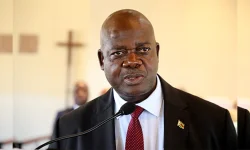International partners have given Zimbabwe $20 million to build schools. The national treasury added more funds to help construct 120 new schools and 300 classrooms this year. These efforts aim to address the shortage of educational facilities across the country. Zimbabwe needs about 3,000 more schools to serve all students properly.
The national government plans to tackle this problem through teamwork between different departments. Education Minister Torerai Moyo shared these plans with lawmakers after they raised concerns about poor school conditions. Parliament members had reported problems with basic facilities, lack of accessibility for disabled students, and unfinished projects due to money shortages.
Moyo told Parliament the government has secured enough resources for new school construction during 2025. The National Building Society will fund 30 of these schools through special arrangements with the Finance Ministry. This building approach has worked well at places like Chinhoyi University of Technology. Each of the ten provinces will receive three new schools through this program.
The OPEC Fund for International Development has promised $20 million to build 50 schools. Forty will serve day students, and ten will offer boarding facilities. The new schools will be built in areas where kids travel far distances to reach classrooms. International standards suggest students should travel less than five kilometers to attend school. The ministry will ask Parliament members to help identify areas most needing educational facilities.
The 2025 national budget already includes money for 100 schools. Private donors and companies should fund additional facilities to reach the yearly target of 120 new schools. The education ministry has also found funding for 300 more classrooms to handle growing numbers of students throughout Zimbabwe. These extra rooms will help reduce overcrowding at existing schools.
Minister Moyo announced plans to help schools start money-making projects. Many schools lack reliable ways to generate income beyond government funding. Education officials will evaluate how schools run business ventures. They plan to train school development committees about creating sustainable projects. This training will focus on helping local school leaders raise resources more effectively for their communities.
The national government plans to tackle this problem through teamwork between different departments. Education Minister Torerai Moyo shared these plans with lawmakers after they raised concerns about poor school conditions. Parliament members had reported problems with basic facilities, lack of accessibility for disabled students, and unfinished projects due to money shortages.
Moyo told Parliament the government has secured enough resources for new school construction during 2025. The National Building Society will fund 30 of these schools through special arrangements with the Finance Ministry. This building approach has worked well at places like Chinhoyi University of Technology. Each of the ten provinces will receive three new schools through this program.
The OPEC Fund for International Development has promised $20 million to build 50 schools. Forty will serve day students, and ten will offer boarding facilities. The new schools will be built in areas where kids travel far distances to reach classrooms. International standards suggest students should travel less than five kilometers to attend school. The ministry will ask Parliament members to help identify areas most needing educational facilities.
The 2025 national budget already includes money for 100 schools. Private donors and companies should fund additional facilities to reach the yearly target of 120 new schools. The education ministry has also found funding for 300 more classrooms to handle growing numbers of students throughout Zimbabwe. These extra rooms will help reduce overcrowding at existing schools.
Minister Moyo announced plans to help schools start money-making projects. Many schools lack reliable ways to generate income beyond government funding. Education officials will evaluate how schools run business ventures. They plan to train school development committees about creating sustainable projects. This training will focus on helping local school leaders raise resources more effectively for their communities.












